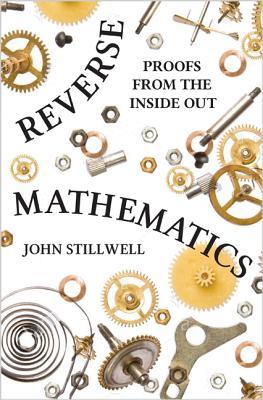With Reverse Mathematics John Stillwell demonstrates the ideas and properties of Reverse Mathematics. I know it is a bit of a tautology to speak of it in this manner, so I will try to explain. Stillwell shows that mathematics had always been establishing axioms and then finding the results of those axioms. Reverse Mathematics goes in the other direction by taking a theorem and finding the axioms needed to prove it.
It is an interesting approach to Analysis, but I don’t really know all that much about Mathematical Analysis. I never took it in school, since I only got up to Calculus II in college. Therefore, there are several things that I find annoying, but that is only because I wasn’t paying attention the first time through. For instance, there is a portion where ZF is mentioned and I didn’t know what that was. The book might use a lot of acronyms but it usually explains what they mean before the author dives into the gist. This is important for when Stillwell decides to drop stuff like ACA and WKL and other such ideas.
In writing this book, it is clear from the text that the author wanted to establish a solid foundation for analysis given some advances in Logic. This is mentioned in the text itself. It doesn’t have any problems to solve or questions to answer.
The book is quite interesting as I mentioned before. It is rather short, but it is densely packed with ideas. It doesn’t have a glossary, choosing instead to jump straight to the Bibliography and Index. In that sense, I could say that the author dropped the ball, but it is possible that the editor thought it unnecessary for the target audience. Then again, you could always search for what he means by using the Internet.

